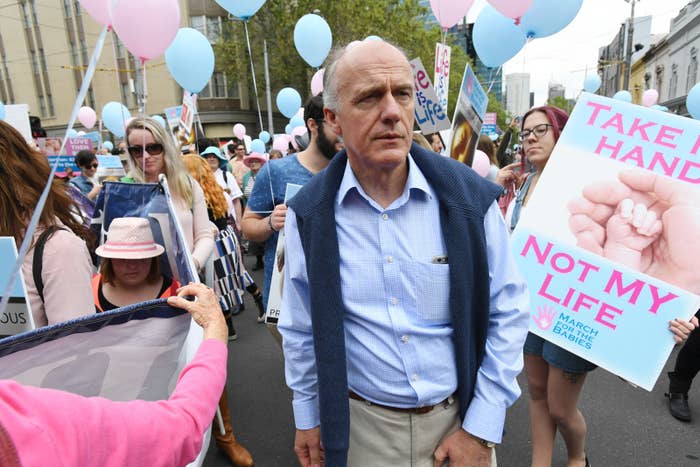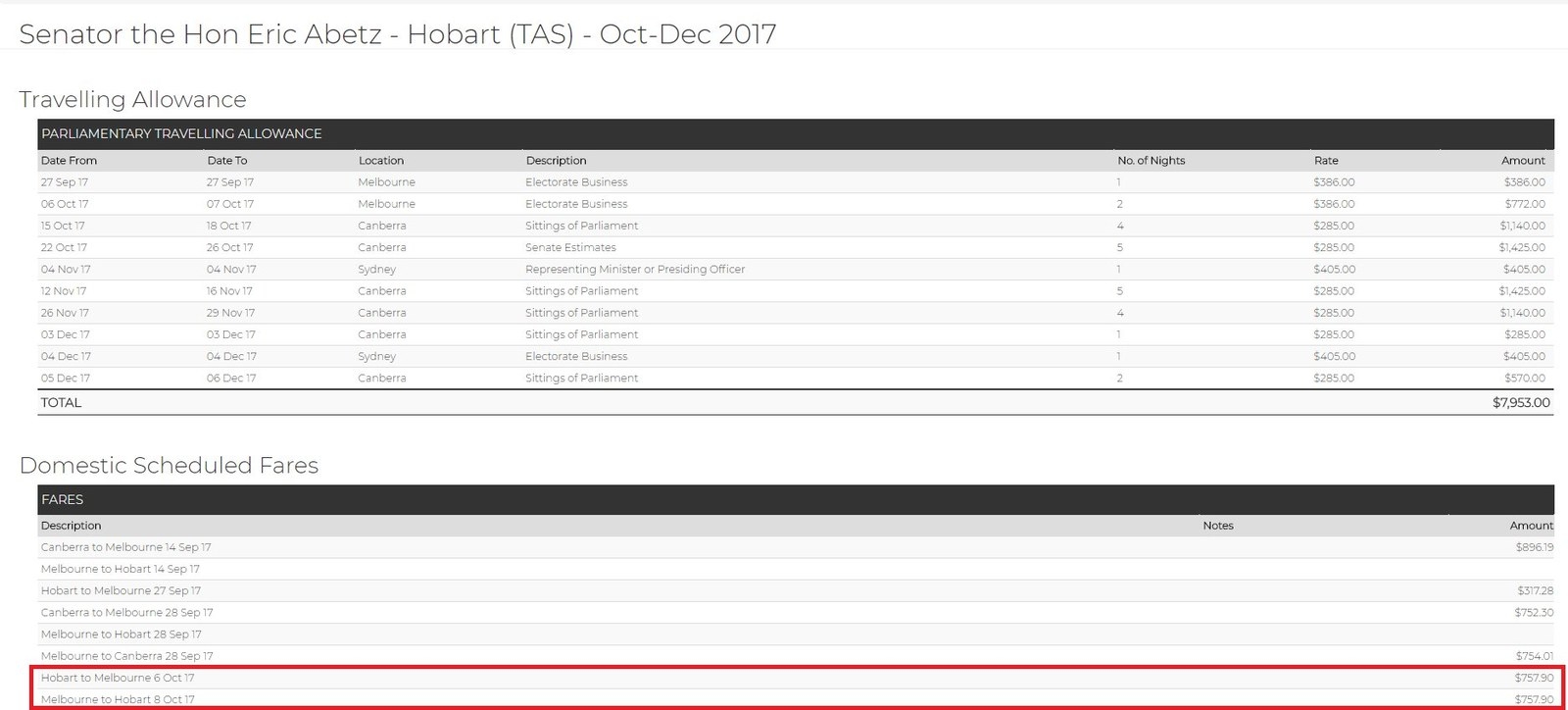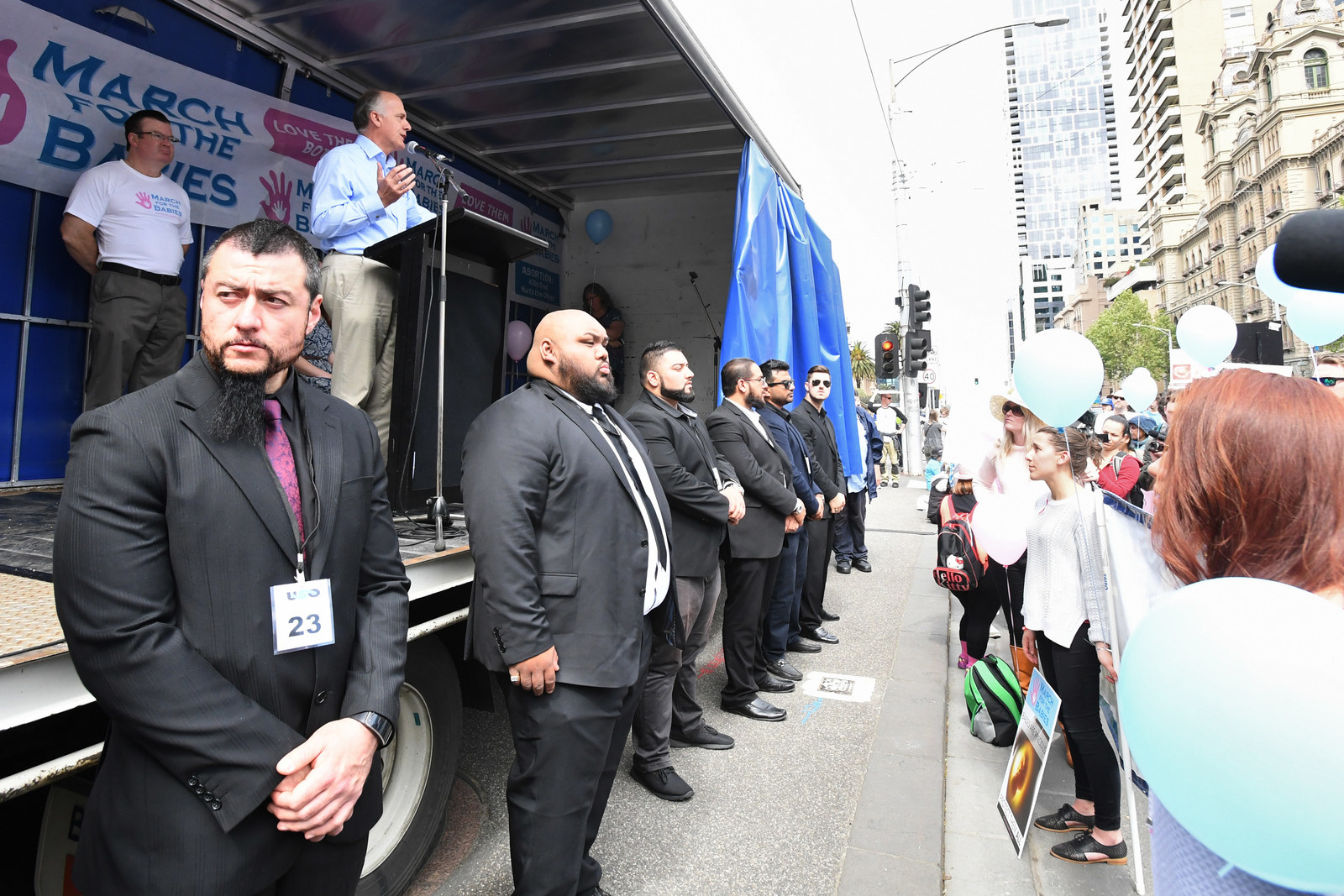Tasmanian senator Eric Abetz claimed $2,287 in expenses for a trip during which he spoke at the anti-abortion March for Babies rally in Melbourne late last year.

Abetz said he was planning the taxpayer funded trip before he was asked to speak at March for Babies, which is held each October to commemorate the 2008 anniversary of the decriminalisation of abortion in Victoria.
"I had a number of unrelated commitments in Melbourne and the travel was planned well before I was asked to speak at the community rally," he said in a statement to BuzzFeed News.
"Just because BuzzFeed doesn’t agree with something doesn’t mean that people shouldn’t be allowed to express that view."
Abetz, who in 2014 incorrectly claimed there was a link between abortion and breast cancer, did not specify which other commitments he had on in Melbourne that weekend.

The Independent Parliamentary Expenses Authority, the new body set up to oversee expenses claimed by politicians, dictates a parliamentarian may be able to claim flight costs, if the purpose of the trip is part of their parliamentary duties, electorate duties, or official duties if they're an office holder or a minister.
Parliamentary duties are broadly defined as "activities of the parliamentarian that relate directly to the parliamentarian’s role", while electorate duties are defined as "activities of the parliamentarian that support or serve their constituents".
Tasmanian women seeking surgical abortions in the state also have to fly from Hobart to Melbourne, after the main provider of surgical abortion in the state for the past 17 years, the Specialist Gynaecology Centre in Hobart, shut up shop in January.
The state’s Patient Travel Assistance Scheme – through which Tasmanians can receive financial help to travel for an unavailable medical procedure – does not cover the full costs of flights and accommodation, leaving women with significant out-of-pocket expenses.
Otherwise, women can pay around $2,500 – a little more than Abetz claimed in expenses – to have a surgical termination with the remaining private provider, who performs a handful of the state's terminations per year.

The procedure was decriminalised in Tasmania in 2013, but following the clinic's closure, its accessibility has been debated by state and federal politicians on both sides of the political spectrum, drawing in the federal health minister, as well as the prime minister.
Premier Will Hodgman, who retained his seat at Tasmania's election over the weekend, has ruled out funding abortions through the public system.
Last month, the federal Labor Party promised that Tasmanian women would not have to travel interstate or pay huge out-of-pocket fees to access surgical abortions under a Shorten Labor government.
A reproductive health hub would provide surgical terminations as part of the public hospital system, and federal and state Labor would contribute to its ongoing costs under the usual Commonwealth-state arrangements.
